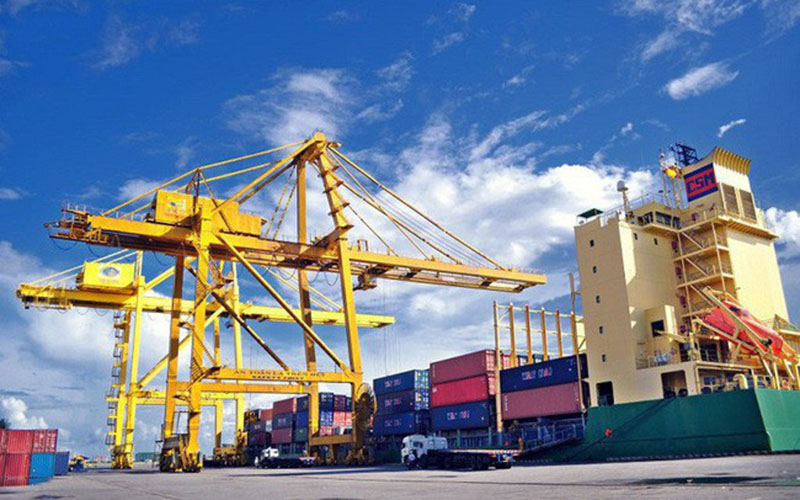What does the customs areas include according to the law in Vietnam?
What does the customs areas include according to the law in Vietnam? Who has the responsibility for inspection of goods and vehicle in customs areas in Vietnam? – Bich Duyen (Lam Dong)

What does the customs areas include? (Internet image)
Regarding this issue, LawNet would like to answer as follows:
1. What does the customs areas include?
According to Clause 1, Article 7 of the Laws on Customs 2014, customs areas include:
- Areas of land border checkpoints, international railway stations, international civil airports; seaports and inland waterway ports where import, export, exit, entry and transit operations are conducted; areas where goods subject to customs supervision are stored, export processing zones and customs preference zones;
Customs clearance places, bonded warehouses, tax- suspension warehouses, international posts, head offices of customs declarants where post-customs clearance inspection is carried out; and places for inspection of imported and exported goods in the customs territory;
- Other areas and places which meet state management requirements and in which import, export and transit of goods and exit, entry and transit of vehicle are permitted as prescribed in Decisions of the Prime Minister.
2. Responsibility for inspection of goods and vehicle in customs areas in Vietnam
Specifically, Article 35 of the Laws on Customs 2014 stipulates the responsibility for inspection of goods and vehicle in customs areas in Vietnam as follows:
- Within their customs areas, customs authorities shall inspect goods and vehicle.
If it is required to carry out a specialized inspection related to quality, health, culture, animal and plant quarantine or food safety for goods and vehicle, customs authorities shall base themselves on the inspection results of specialized inspection agencies to decide on customs clearance.
- Goods subject to specialized inspection shall be stored at border checkpoints until they are cleared from customs formalities.
When goods are permitted to be brought to other places for specialized inspection as prescribed in regulations of law or when goods owners request to carry goods to their storage places for preservation, such storage places must satisfy customs supervision conditions and the goods shall be subject to customs supervision until they are cleared from customs formalities.
Goods owners shall preserve and store goods at places for specialized inspection or at their storage places until customs authorities decide customs clearance.
- The time limit for specialized inspection of goods must comply with corresponding regulations of law. Specialized inspection agencies shall notify inspection results to customs authorities within 2 working days after the inspection results are available.
- Heads of Customs Sub-Departments shall take charge, and cooperate with specialized inspection agencies at border checkpoints in, ensuring fast customs clearance for goods and vehicle.
3. What are prohibited acts in customs in Vietnam?
The following acts are strictly prohibited in the field of customs:
(1) For customs officials:
- Causing troubles and difficulties when following customs formalities;
- Screening or colluding with others in smuggling or illegally transporting goods across the border, committing trade or tax fraud;
- Taking bribes, appropriating or embezzling temporarily seized goods or other acts for self-seeking purposes;
- Other violations against the law on customs.
(2) For customs declarants, entities with rights and obligations related to import, export and transit of goods, or exit, entry and transit of vehicles:
- Committing fraudulent acts in carrying out customs formalities;
- Smuggling or illegally transporting goods across the border;
- Committing trade or tax fraud;
- Giving bribes or other acts for self-seeking purposes;
- Obstructing customs officials in performing their official duty;
- Hacking, falsifying or destroying the customs communication system;
- Other violations against the law on customs.
(Article 10 of the Laws on Customs 2014)
- Key word:
- customs areas
- in Vietnam
- Cases of land rent exemption and reduction under the latest regulations in Vietnam
- Economic infrastructure and social infrastructure system in Thu Duc City, Ho Chi Minh City
- Regulations on ordination with foreign elements in religious organizations in Vietnam
- Increase land compensation prices in Vietnam from January 1, 2026
- Determination of land compensation levels for damage during land requisition process in Vietnam
- Who is permitted to purchase social housing according to latest regulations in Vietnam?
-

- Emergency response and search and rescue organizations ...
- 10:29, 11/09/2024
-

- Handling of the acceptance results of ministerial ...
- 09:30, 11/09/2024
-

- Guidance on unexploded ordnance investigation ...
- 18:30, 09/09/2024
-

- Sources of the National database on construction ...
- 16:37, 09/09/2024
-

- General regulations on the implementation of administrative ...
- 11:30, 09/09/2024
-

- Notable new policies of Vietnam effective as of ...
- 16:26, 11/04/2025
-
.Medium.png)
- Notable documents of Vietnam in the previous week ...
- 16:21, 11/04/2025
-
.Medium.png)
- Notable documents of Vietnam in the previous week ...
- 16:11, 02/04/2025
-
.Medium.png)
- Notable new policies of Vietnam to be effective ...
- 16:04, 02/04/2025
-
.Medium.png)
- Notable new policies of Vietnam effective from ...
- 14:51, 21/03/2025
 (1).png)
 Article table of contents
Article table of contents
